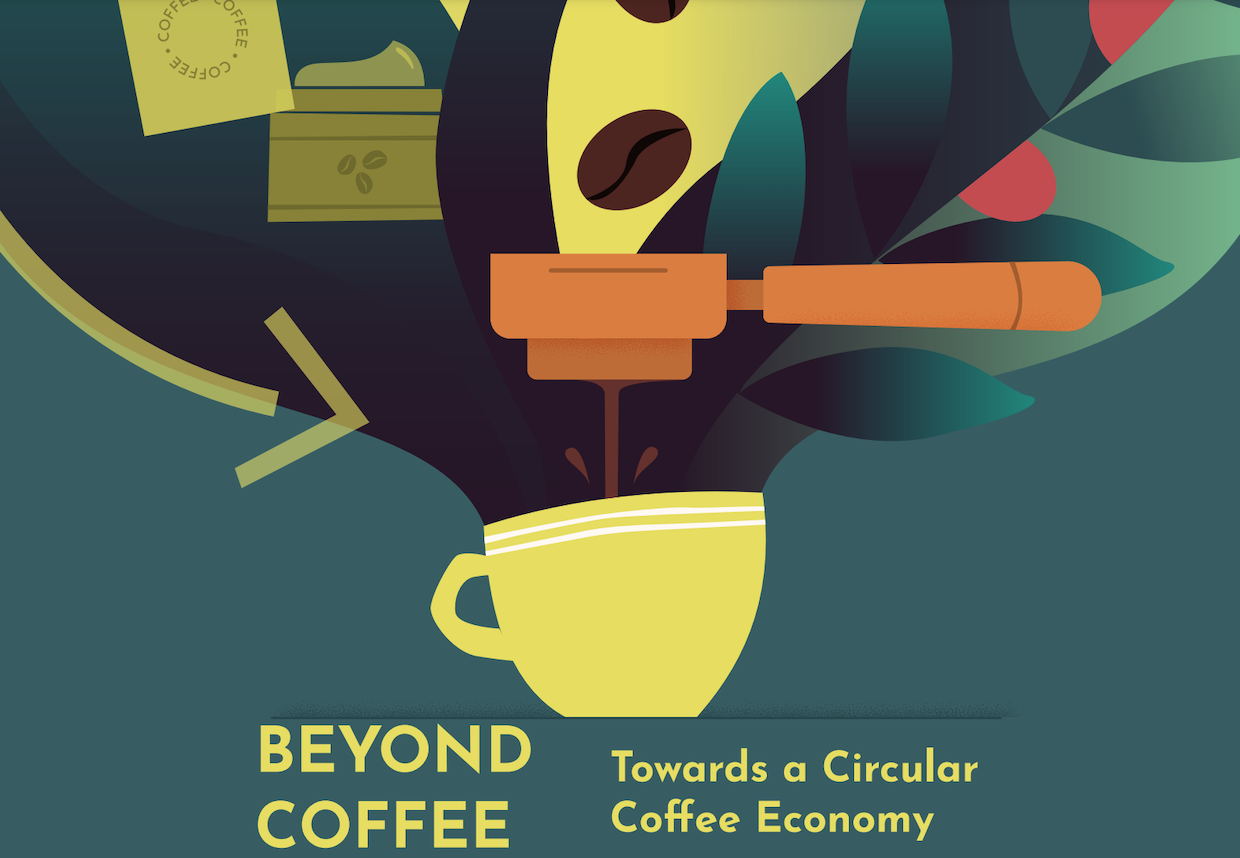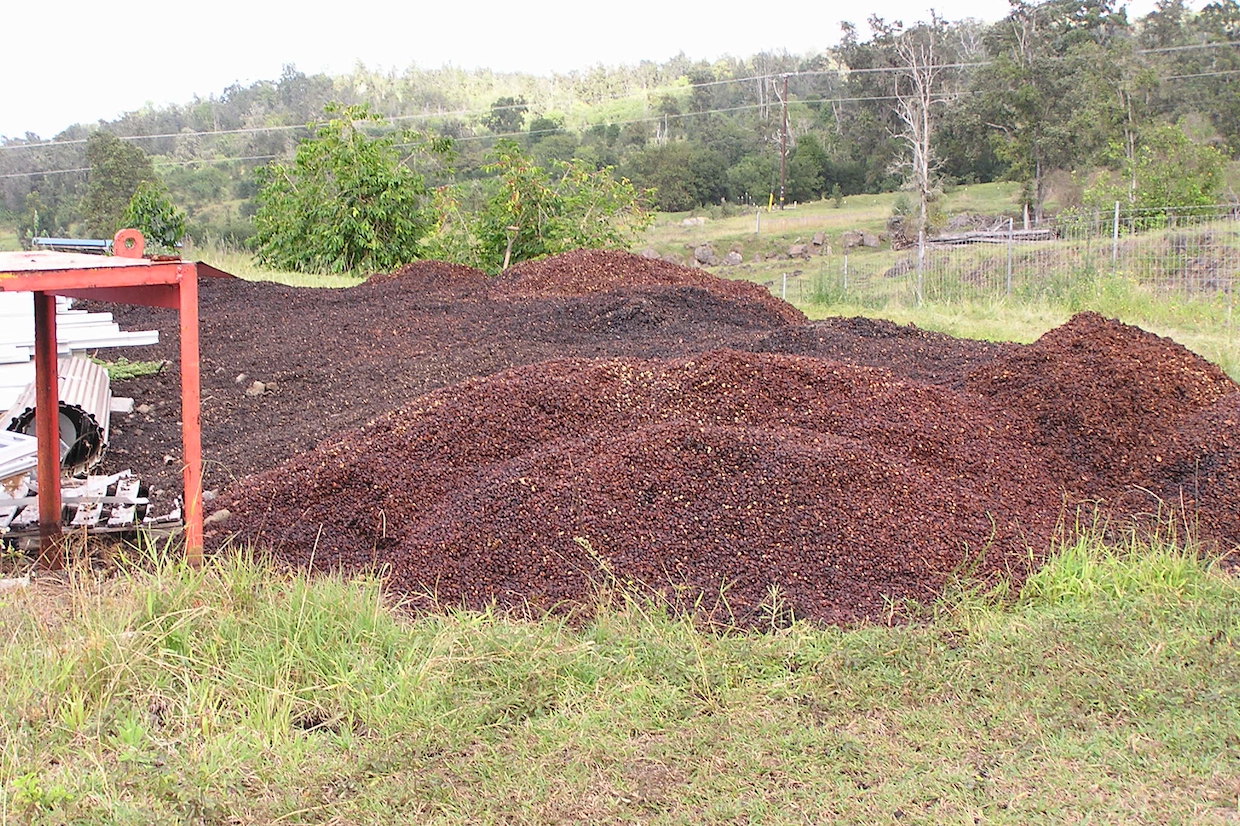
A section of the cover page of the new report called “Beyond Coffee: Towards a Circular Coffee Economy”
In its latest flagship annual report, the Coffee Development Report, the International Coffee Organization (ICO) outlines the prospects of a circular economy in coffee against the backdrop of climate change.
Published in partnership with the International Trade Centre (ITC), Politecnico di Torino, the Lavazza Foundation and the Center for Circular Economy in Coffee (C4CEC), this is the third edition of the ICO’s global development report. The first edition launched in 2020, just before the global coffee industry was thrust into turmoil due to the COVID-19 pandemic.
The new report leans heavily on the premise that regenerative agriculture practices and circular practices, such as repurposing coffee waste into biofuels or ingredients, can boost climate resilience while adding revenue for farmers.
“We aim to challenge the outdated perception that coffee producers gain value solely from the coffee bean itself,” ICO Executive Director Vanúsia Nogueira said in an announcement of the release. “I firmly believe that everyone in the coffee sector — coffee farmers, workers, industry stakeholders and consumers — can play a crucial role in driving the shift toward a more sustainable and resilient industry.”

Coffee pulp waste, which can be transformed into compost, biofuels or other valuable products. Public domain photo.
Naturally, the report also underscores the primary hurdle affecting all grand schemes focused on coffee production: a lack of organizational and financial resources, particularly for smallholder coffee farmers, who represent more than 90% of the world’s coffee farmers and produce more than half of the world’s coffee.
Here are just a few key findings from the report:
- Circular economy can alleviate climate and economic pressures: Implementing regenerative agriculture and circular practices can reduce environmental degradation, boost resilience for farmers, and protect ecosystems.
- Economic growth potential through waste utilization: Upcycling coffee production waste can unlock new income streams, create jobs, and address value chain imbalances, particularly in producing countries.
- Challenges and recommendations for circularity: Fragmented policies, limited financing, and low consumer awareness pose barriers, but ICO recommends coordinated action, incentives, and infrastructure investment to enable this shift.
Where the latest ICO report shines is in policy recommendations towards circularity in coffee. It offers something of a roadmap aimed at transforming the industry from a linear to a circular model, while providing recommendations for each major stage of the coffee chain (or circle, as it were):
Here is a broad station-by-station overview of the report’s recommendations towards circularity:
- Farming and Production: Emphasizing regenerative agriculture, the ICO encourages practices that restore soil health, reduce fertilizer dependence and enhance biodiversity. The report stresses the use of coffee byproducts as organic fertilizers and soil conditioners.
- Processing: In post-harvest processing, the report suggests circular practices such as reusing coffee husks, pulp and mucilage as substrates for bioenergy production, animal feed or even cosmetics. Such byproducts could be repurposed into something valuable, creating additional income opportunities.
- Packaging and Transport: The report suggests circular principles might apply to the trade coffee and packaged coffee products through less environmentally harmful packaging, such as biodegradable materials or compostable capsules.
- Consumer and Post-Consumption: After brewing, spent coffee grounds can be converted into products like fertilizers or cosmetics, rather than ending up in landfills, according to the report. The report also encourages the development of recycling systems for single-serve coffee capsules due to their popularity and wasteful nature.
To overcome these barriers, the ICO report advocates for public/private partnerships, government support in the form of subsidies or incentives for circular practices, and financing mechanisms that don’t put additional burdens on producers.
Find the full report (2022-23) here.
Comments? Questions? News to share? Contact DCN’s editors here.






Comment